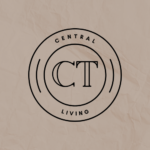This is a simplified overview of the home buying process, and the actual process may vary depending on factors such as location, financing option, and individual circumstances. It’s essential to work closely with professionals such as real estate agents, lenders, and attorneys to navigate each step successfully.
1. Determine Your Budget
Assess your finances, including savings and credit score, to determine how much you can afford to spend on a home.
2. Get Pre-Approved
Get pre-approved for a mortgage by a lender. This involves providing your financial information, such as your credit score, income, assets, and debts, to determine the loan amount you qualify for. The Lender will also work with you to find the best mortgage program for you.
3. Find a Real Estate Agent
Hire a reputable real estate agent who can assist you throughout the home buying process, including searching for suitable properties and negotiating on your behalf.
4. Search for Homes
Work with your real estate agent to identify and visit potential homes that meet your requirements. Consider factors such as location, size, amenities, and price. You can search for homes on this site here.
5. Make an Offer
Once you find a home you like, work with your agent to submit a written offer to the seller. The offer will include details like the purchase price, contingencies, and proposed timeline.
6. Negotiation and Acceptance
The seller may accept your offer or make a counteroffer. Negotiate until both parties reach an agreement on the terms of the sale, including price, repairs, and closing date.
7. Home Inspection
Hire a professional home inspector to examine the property for any structural or maintenance issues. Review the inspection report and negotiate with the seller for repairs or credits, if necessary.
8. Mortgage Application
Once the offer is accepted, formally apply for a mortgage loan with the chosen lender. Provide necessary documents and pay any required fees.
9. Appraisal
The lender will arrange for an appraisal to determine the value of the home. The appraisal helps ensure the property is worth the loan amount and protects the lender’s investment.
10. Underwriting and Loan Approval
The lender’s underwriting team reviews your application, credit history, and appraisal report. If everything meets their criteria, they will approve your loan, subject to certain conditions.
11. Closing Preparation
Coordinate with your real estate agent, lender, and attorney (if applicable) to prepare for the closing process. This includes obtaining homeowner’s insurance, conducting a final walkthrough, and gathering necessary documents.
12. Closing
Attend the closing meeting, where you’ll sign all the required paperwork, including the mortgage documents and the property title. Pay the closing costs, which typically include fees for the loan, inspections, and other services.
13. Funding and Transfer of Ownership
The lender will fund the loan, and ownership of the property will be transferred to you. You’ll receive the keys to your new home!





